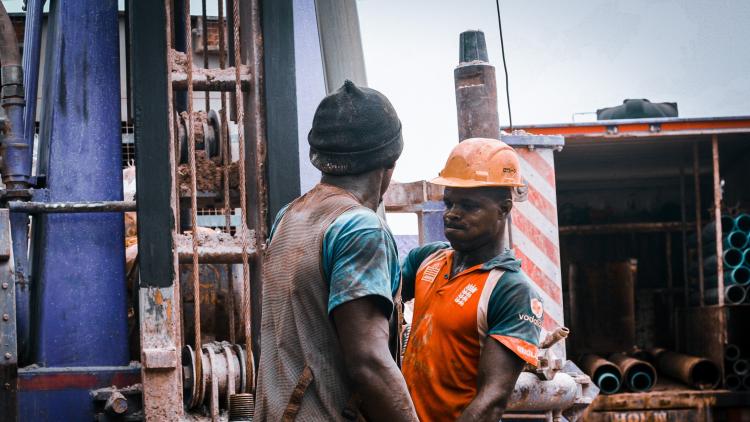The Working Poor and Labour

Key information
- Start date
- End date
- Year of study
- Year 2
- Duration
- Term 1
- Module code
- 151010059
- FHEQ Level
- 5
- Credits
- 15
- Department
- Department of Development Studies
Module overview
The aim of this module is to provide students with a solid grounding in labour studies in relation to ‘development’, especially development as poverty reduction and reduction of inequalities.
It will enable students to understand major aspects of the interaction between ‘the working poor’ and ‘development’, and, as part of this, to understand how a development approach focussing on labouring groups differs conceptually from a perspective focussing on ‘poverty’, and leads to different developmental solutions.
To do so, the course considers conceptual issues relating to labour and development, and historical aspects of labour and capitalist development in Europe and the Global South. It will analyse aspects of globalisation and global commodity chains, neo-liberalism, labour regimes, labour relations, and labour struggles, with a focus on class, gender, and race/ethnicity/caste relations. It will introduce competing theories / explanatory frameworks, and point out differences between poverty and labour focussed approaches. It will discuss policy approaches to the working poor, including ILO’s ‘Decent Work’ approach, Corporate Social Responsibility and International Union approaches.
It will also consider the struggles of and for the working poor by organised labour and social movements, including movements organised along the lines of gender, race etc. Both mainstream and heterodox approaches will be investigated and views from the Global South will form an integrated part of the course.
Objectives and learning outcomes of the module
LO1) Demonstrate familiarity with major debates on the working poor and development under capitalism
LO2) Analyse and compare mainstream and heterodox approaches to social policies attempting to address the labour conditions of the working poor
LO3) Apply critical theoretical and methodological approaches to the working poor in particular countries
LO4) Appreciate the potential and limits of the ILO Decent Work agenda and other policy approaches to the working poor
LO5) Understand the changing nature of the organisation of the working poor by organised labour and social movements
Workload
- Lectures: 1hr per week
- Tutorials: 1hr per week
- Independent study: 130hrs (over 10 weeks)
Scope and syllabus
- Introduction and overview: labour, development and poverty
- The emergence of the working class in North – and the South?
- Neoliberalism, informalisation and precarity
- Labour, gender and race
- Modern slavery and child labour: the ILO and beyond
- The ILO Decent Work agenda and social policies
- Corporate Social Responsibility and development organisations: decent work?
- Working poor resistance, social movements and NGOs
- Organising the working poor: trade unions?
- The future of work and the working poor
Method of assessment
- Review article: 1,000 words (35%)
- Essay: 2,000 words (65%)
Suggested reading
- Braverman, H. (1974) Labor and Monopoly Capital: The Degradation of Work in the Twentieth Century. London: Monthly Review Press.
- Polanyi, K. (1944) The Great Transformation: The Political and Economic Origins of Our Time. Boston, MA: Beacon Press
- Loscocco, K. (2017) Race and work. Cambridge: Polity Press.
- Third World Quarterly, 2016. Special issue on Class Dynamics of Development, Third World Quarterly 37(10).
- ILO 2020: Flagship Report: World Employment and Social Outlook: Trends 2020
- Choudry, A. and Hlatshwayo, M. (2015) Just Work? Migrant Workers’ Struggle Today. London: Pluto Press.
- Ness, I. (2016) Southern Insurgency: The Coming of the Global Working Class. London: Pluto Press.
- Freund, B. (1988) The African Worker. Cambridge: Cambridge University Press.
- Pun, N. (2005) Made in China: Women Factory Workers in a Global Workplace. Durham, CA: Duke University Press.
- Shah, A, Lerche, J. 2020. ‘Migration and the invisible economies of care: Production, social reproduction and seasonal migrant labour in India.’ Trans Inst Br Geogr. 2020; 45: 719– 734.
Additional reading
- Kabeer. N. (2000) The Power to Choose: Bangladeshi Women and Labour Market Decisions. London: Verso.
- Silver, B. (2003) Forces of Labour: Workers’ Movements and Globalization since 1870. Cambridge: Cambridge University Press.
- Srnicek, N. and Williams, A. (2016) Inventing the Future: Post-capitalism and a World Without Work. London: Verso.
- Thompson, E.P. (1968) The Making of the English Working Class. London: Penguin.
- Fields, G. (2012) Working Hard, Working Poor: A Global Journey. Oxford: Oxford University Press.
- Mezzadri, A. 2016. The sweatshop regime: labouring bodies, exploitation, and garments Made in India. Cambridge: Cambridge University Press.
- Rizzo, M., 2017. Taken For A Ride. Grounding Neoliberalism, Precarious Labour, and Public Transport in an African Metropolis. Oxford: Oxford University Press.
Disclaimer
Important notice regarding changes to programmes and modules


